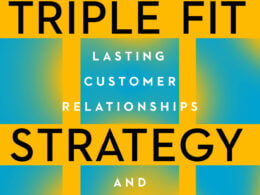Managing your finances should be taught in school. Unfortunately, this is not always the case. More than half of us live paycheck to paycheck. Similarly, nearly one-third of adults have no emergency reserves or savings.
This is a recipe for disaster, especially when we’re faced with recession or a pandemic. Solid financial guidance is essential. Fortunately, there are many excellent personal finance books available to help you learn how to manage your money through the good and bad.
If you appreciate personal development, you already know the value of a good book. You get to learn at your own pace, and when you’re done, you have a resource to return to again and again.
Here are a few highly respected titles to get you started on your financial literacy journey!
- “Why Didn’t They Teach Me This In School?” by Cary Siegel
Siegel, a retired corporate leader, has a wealth of knowledge about money management. Educating his five children about excellent financial practices inspired him to write his book.
The 99 principles and eight basic teachings he offers will help you manage your money better. The information is easy to read and full of useful advice and personal experiences. As a result, Siegel’s book has quickly established itself as one of the best personal finance publications available today.
- “The Total Money Makeover” by Dave Ramsey
If you need debt management help, this New York Times best-seller is the book for you. Dave Ramsey introduces his “snowball method” of debt repayment in a straightforward manner.
He also addresses themes like;
- Avoiding further debt such as rent-to-own, cash advances, and credit cards.
- Managing your money for future crises, retirement preparation, and college.
- “Stop Acting Rich…And Start Living Like A Real Millionaire” by Thomas J. Stanley
You may have heard of Thomas J. Stanley’s novel, “The Millionaire Next Door.” It’s another interesting read about how most millionaires live and how the vast majority of them don’t live in McMansions, but rather in our communities.
That’s how they got rich: by being frugal and avoiding large, unneeded purchases.
“Stop Acting Rich” is an excellent sequel to Stanley’s more well-known title. In it, he goes into more detail on the true habits and tastes of people with a lot of money. He emphasizes the point that if you want to be a millionaire, spending to look affluent won’t get you there.
- “Rich Dad Poor Dad: What the Rich Teach Their Kids About Money That the Poor and Middle Class Do Not!“ by Robert T. Kiyosaki
In this delightful book, Kiyosaki shares the lessons he learned from his two fathers. One he calls the “Poor Dad” and the other, the “Rich Dad.”
Throughout the book, writer-speaker-billionaire Robert T. Kiyosaki supports the necessity of financial literacy. He also provides basic rules and principles for achieving financial freedom.
- “Your Money or Your Life: 9 Steps to Transforming Your Relationship with Money and Achieving Financial Independence“ by Vicki Robin and Joe Dominguez
This is the book that popularized the FIRE movement: Financial Independence, Retire Early. The movement is commonly associated with the millennial generation. The primary goal of FIRE advocates is to save 25 times their annual expenses, and then withdraw 4% each year as retirement income.
To reach their financial target, they must live an extremely frugal lifestyle and commit fully to the system.
“Your Money or Your Life” was rewritten in 2018. It is widely regarded as one of the most influential publications on personal finance ever written.
- “The Behavior Gap: Simple Ways to Stop Doing Dumb Things With Money” by Carl Richards
Carl Richards is well-known for his “Sketch Guy” column in the New York Times. If you like Richards’ direct approach to complex topics, “The Behavior Gap” is the book to start with.
This book examines how our emotions can impact our behavior. They can drive even intelligent people to make poor financial judgments.
Richards goes on to offer methods for remaining logical and grounded in financial matters. He teaches the reader to avoid major mistakes by taking a gradual and steady path to financial success.
- “I Will Teach You to Be Rich” by Ramit Sethi
Forbes has dubbed Sethi the “money magician” for good cause. In his book, he offers a 6-week approach to help you manage your money more successfully.
You’ll learn how to stick to a solid financial strategy by setting up clever, automated methods. This will allow you to pay down debt and accumulate wealth more quickly. Sethi also includes advice on how to negotiate for a higher salary at work.
- “Personal Finance for Dummies, 9th Edition” by Eric Tyson
Opening a book created for “dummies” requires some humility. But those who dig into Eric Tyson’s massive series of books are frequently rewarded.
Tyson covers it all in almost 400 pages; everything from budgeting and mutual fund investing, to comprehending different types of insurance, and covering the changes in the 2018 tax bill.
Cryptocurrency and millennial lifestyle changes are among the new themes covered in the latest issue. It’s a perfect place to start for a fast introduction to these concepts.
6 Finance Books to Help You Make Better Business Decisions
Bottom line
Improving your financial literacy through reading is always a great idea. And with the rise of podcasts and other forms of digital media, there are more opportunities than ever to get useful information to help you develop good financial habits and make wise decisions.
But it can be difficult to choose, and stick to, the best strategy for your situation. For that, you might want to talk to an expert. Find someone you can truly engage with and ask for advice that is specific to your life and current financial position.
A financial adviser can be the partner you need to meet your goals when you’re ready to take your financial success to the next level.






